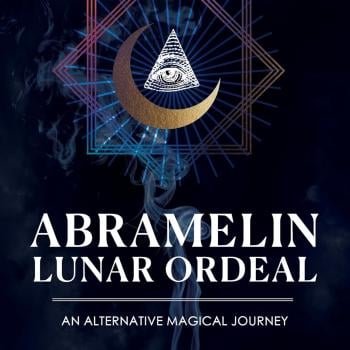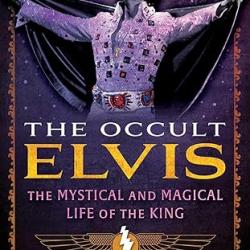Review of Queer Magic: LGBT+ Spirituality and Culture from Around the World by Tomás Prower.

In the predominantly heteronormative western world, shaped by an adherence to Abrahamic faiths, LGBTQ+ people are often made to feel like outsiders. Sadly, in the USA a disproportionate number of homeless youths are from this demographic, often running away from home to escape family conflicts. But it wasn’t always like this for LGBTQ+ youth, there was a time when they were cherished rather marginalized, and hopefully as more people embrace alternative spiritual modalities, we can return to these values.
Queer Magic ambitiously provides an overview of the significant presence and influence of queer folks and spiritual practices from different regions of the world throughout history. Readers can dip into those regions which they have a link with, either through a blood tie or resonance, so as to learn about deities, heroes, and historical figures and incorporate them into their own spiritual practices. Another benefit of this book is that readers become very aware of being a part of the worldwide queer community, and should never feel alone.
Queer Magic‘s footnotes and a comprehensive bibliography provide avenues for in-depth explorations of regions and time periods of interest.
It will come as no surprise that I was drawn to the chapter covering ancient Greece. Mr Prower covers the subject of LGBT+ culture in ancient Greece in much greater depth than I did in Hellenismos: Practicing Greek Polytheism Today.
The ancient Greeks believed that their deities looked exactly like them, behaved like them, had the same positive and negative traits, but lived forever and possessed supernatural powers.
For the ancient Greeks, it apparently didn’t matter what gender a male’s lover was, but what did matter was whether the male was a “top” or a “bottom.” A top was seen as masculine, mature, and higher up on the social ladder. A “bottom” was seen as engaging in a womanly act and thus emasculated. Because mature Greeks didn’t want the stigma of being perceived as a bottom, they would engage in pederasty, where a young man would take on the role of a bottom. This was actually a prolonged rite of passage that transitioned an adolescent to manhood. Once the young man was able to grow a beard, around age eighteen, he marry a woman, and perhaps find his own younger man to sponsor.
An exception to this rule was in the military where the Sacred Band of Thebes was comprised of male lovers, whose romantic and sexual bond made them fight harder to protect each other in combat. Alexander the Great had male lovers, most notably Hephaestion. Similarly, in Homer’s Iliad, Achilles was closely tied to Patroclus.
I personally feel that while there is much that we can learn from the ancient Greeks, there are a number of things that we cannot adopt from them. In this particular case, pederasty should be stigmatized, while bottoming should be destigmatized. There should also be no difference in the perceived value of the genders.
For those wanting to work with the Greek deities, the tragic affair of Apollo and Hyacinth (Hyakinthos) is recounted, which provides an explanation for the use of the purple hyacinth flower in male-male love magic over the centuries. Athena is discussed as being a gender-fluid deity. Baubo and Iambe are discussed as queer goddesses who possibly aroused Demeter. The story of Iphis is discussed as a myth of lesbian and transgender love. The chapter concludes with a discussion of Plato’s mythological origin of love and companionship, which is presented as explaining the origin of gay men, lesbians and heterosexuals – this myth normally is used to explain Twin Flame relationships.
Sadly, there is no mention of the myth of Zeus and Ganymede, which I think would make a powerful working. Apart from this omission, I think that there is a lot of material to profitably work with.

Hyacinth
All in all, Queer Magic is a wonderful starting point for exploring LGBTQ+ spirituality. It provides a broad overview of the presence and influence of queer folks and spiritual practices all over the world throughout history, supplemented with footnotes and a comprehensive bibliography
Tony Mierzwicki
Author of Hellenismos: Practicing Greek Polytheism Today and Graeco-Egyptian Magick: Everyday Empowerment.
















